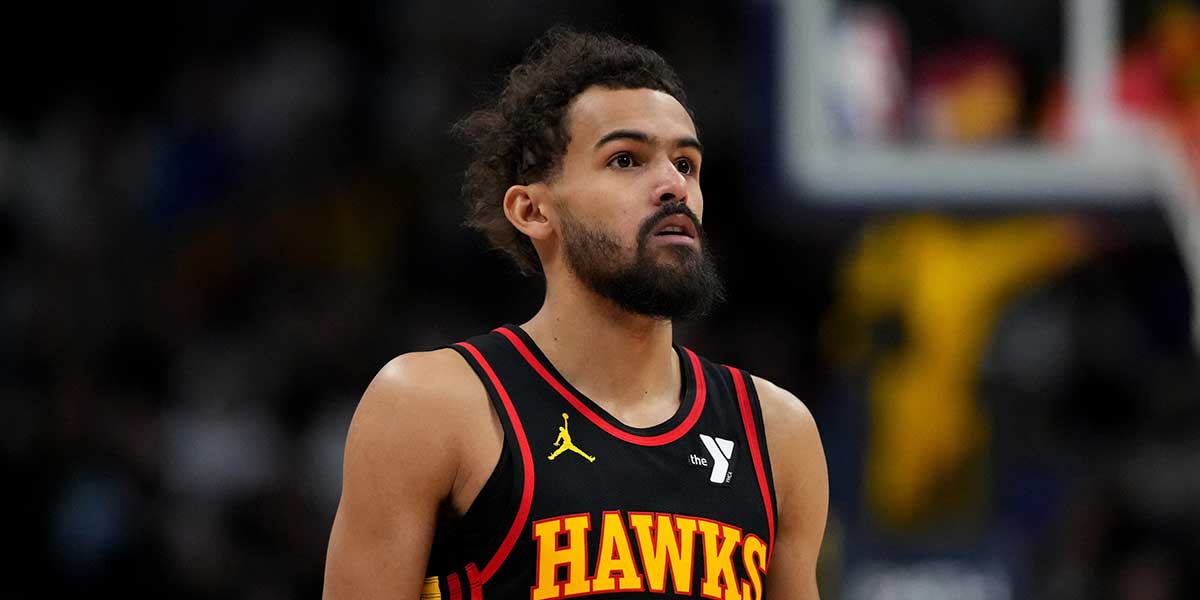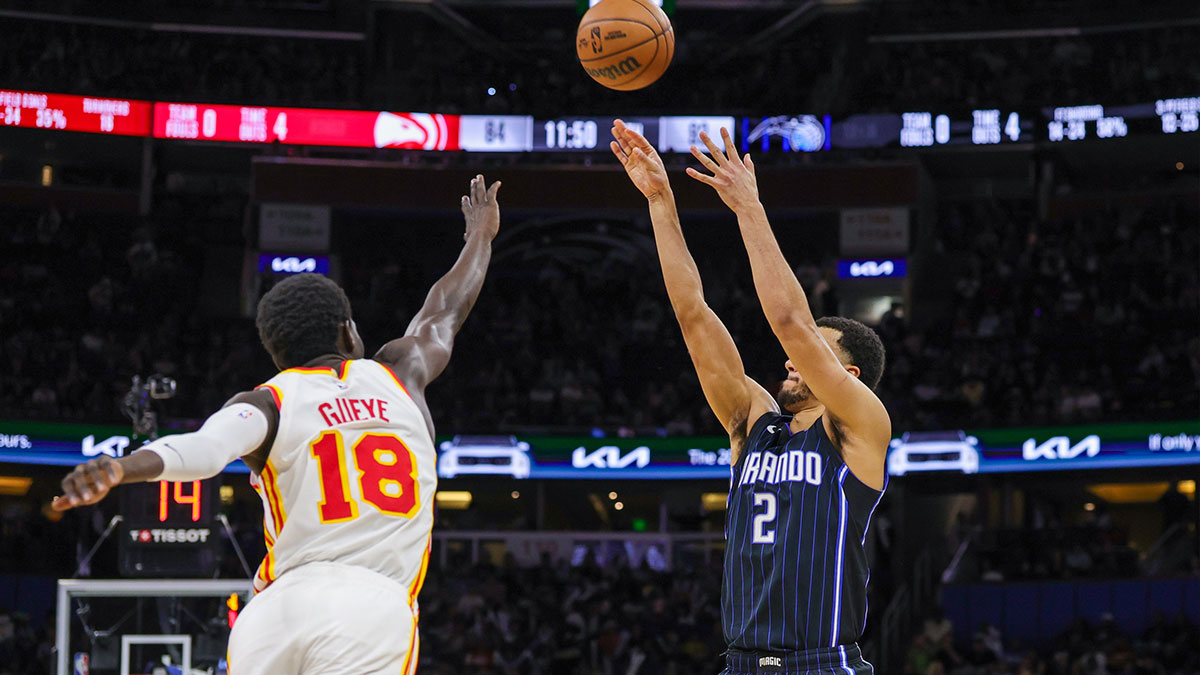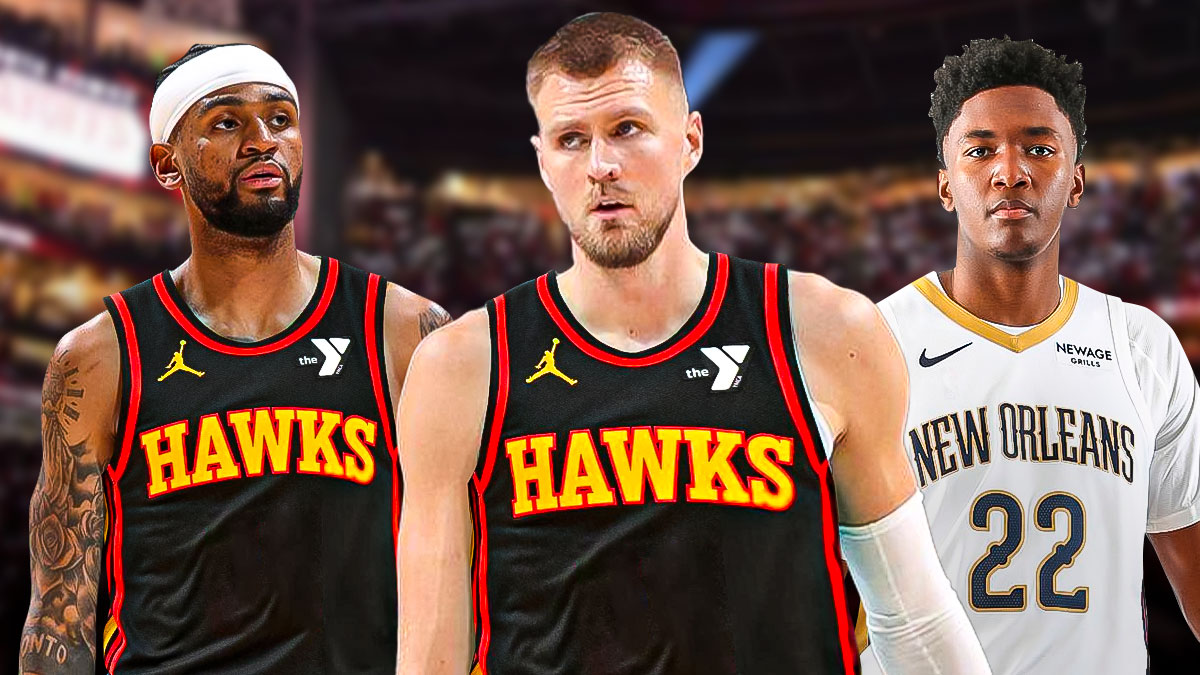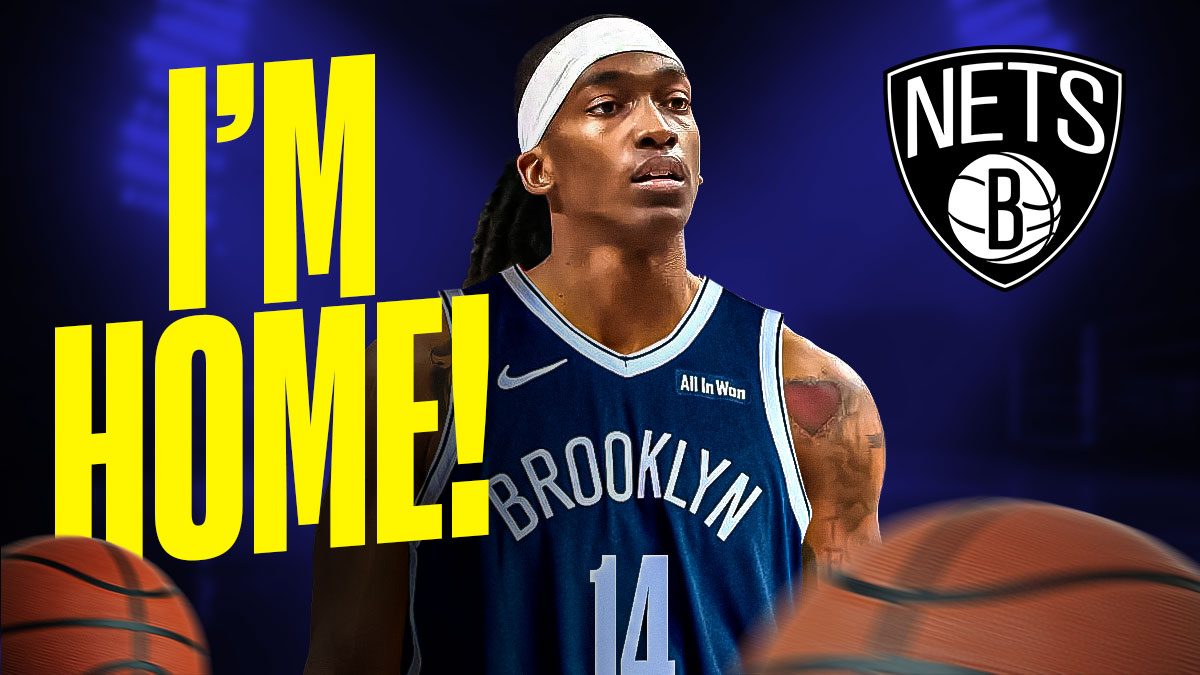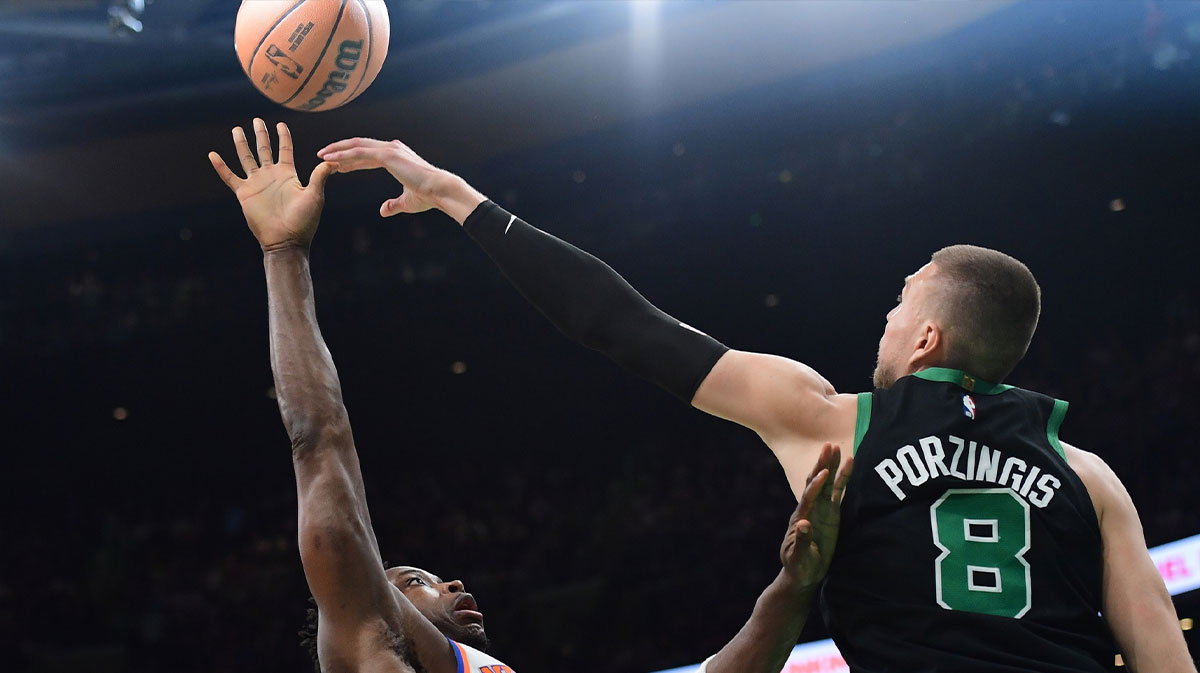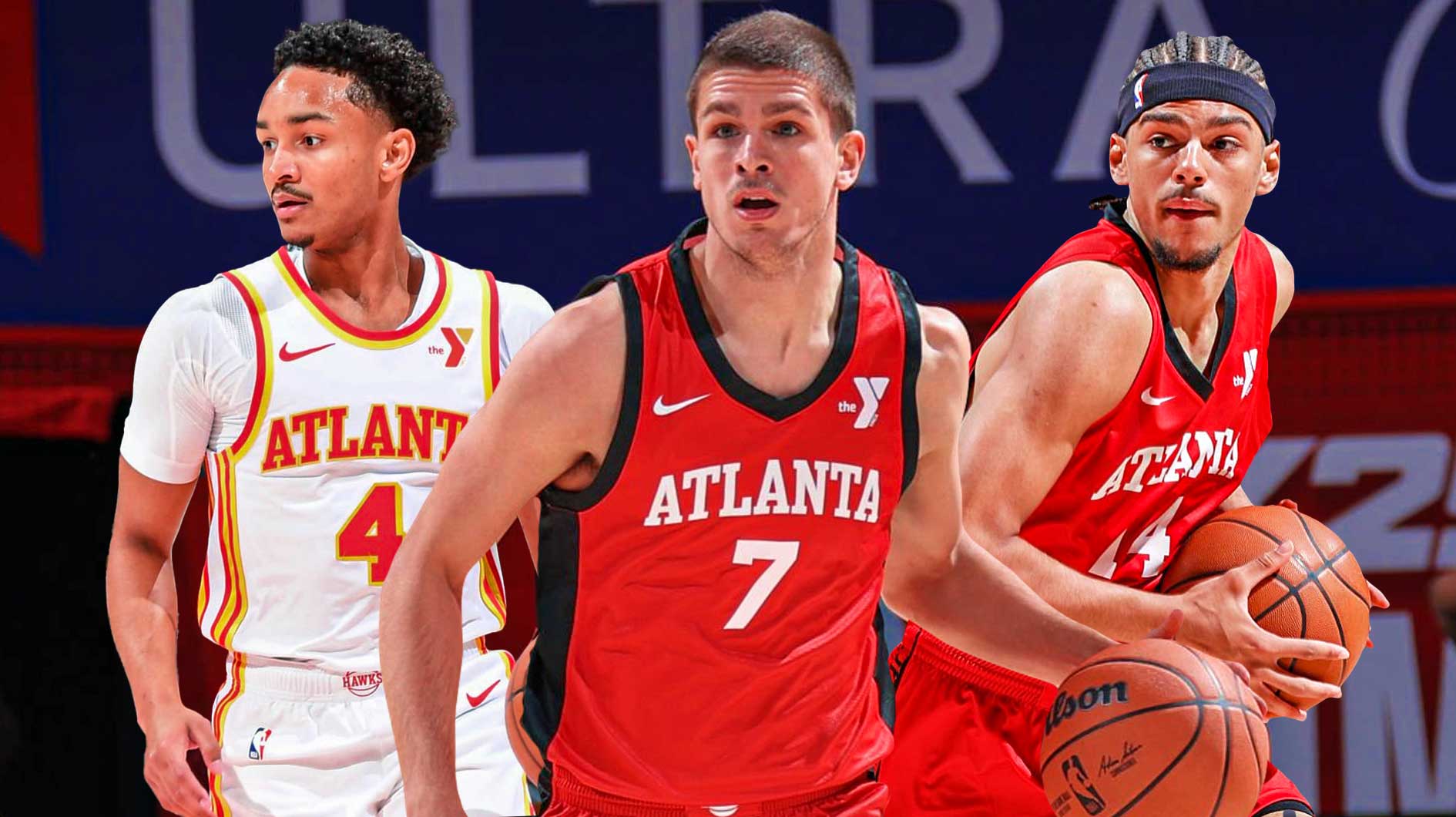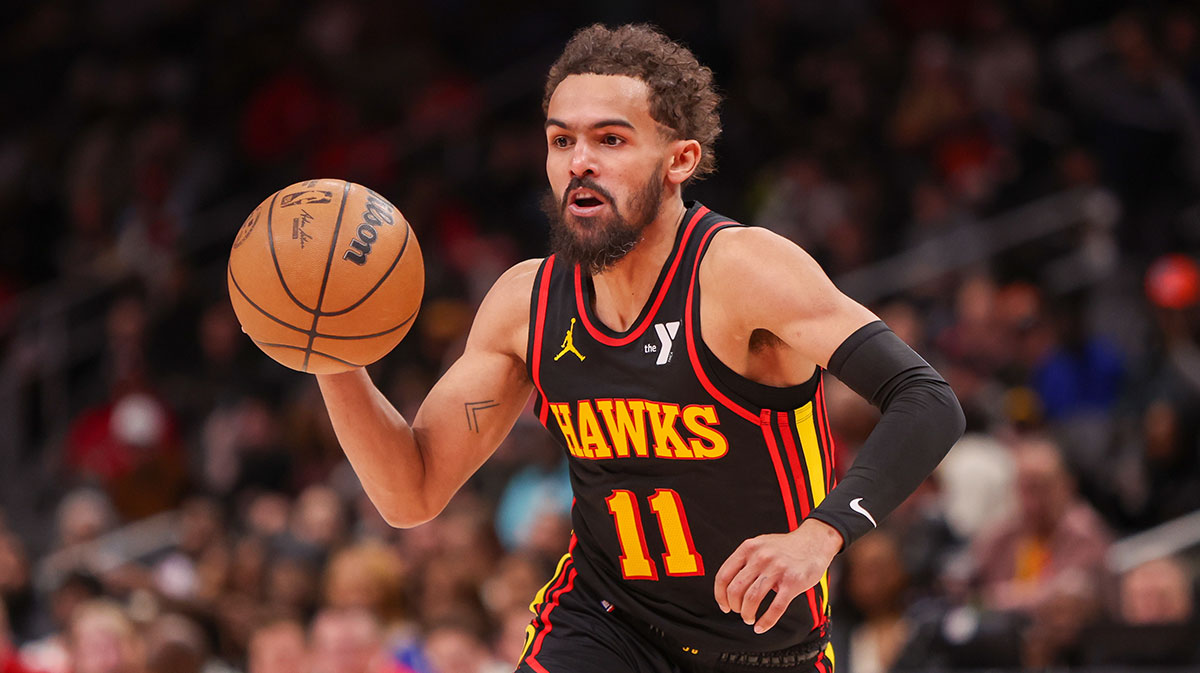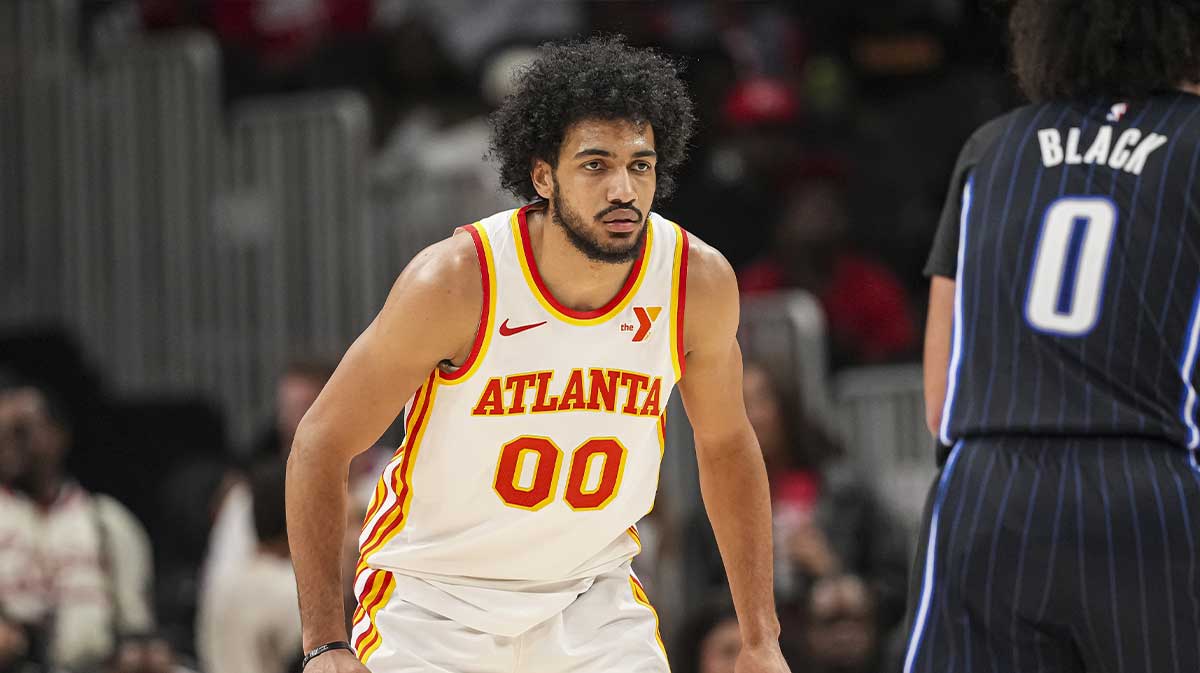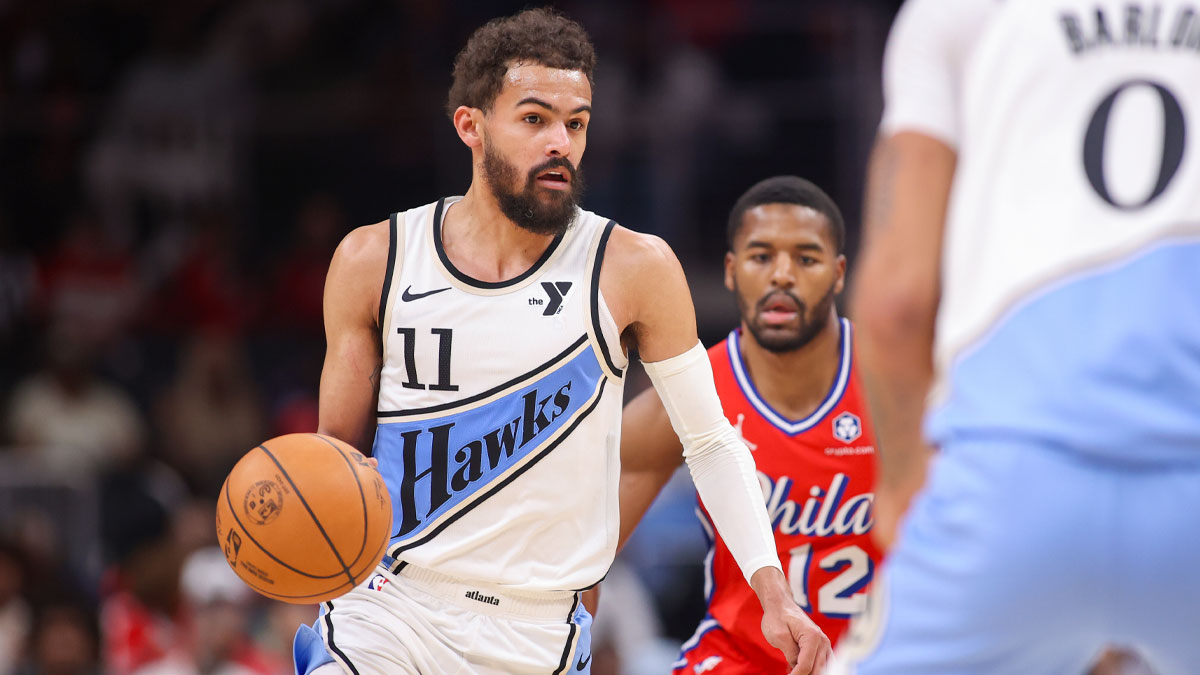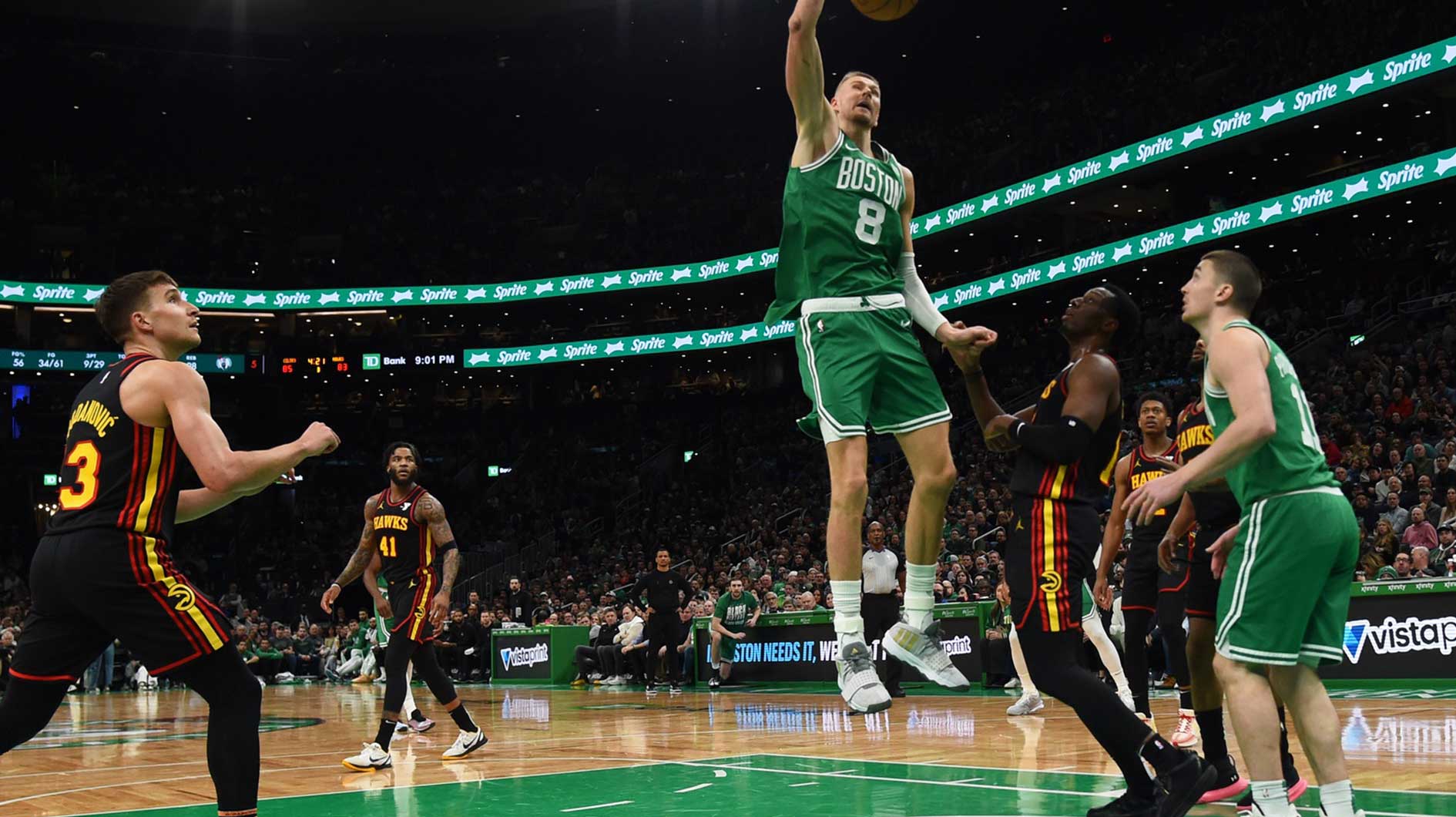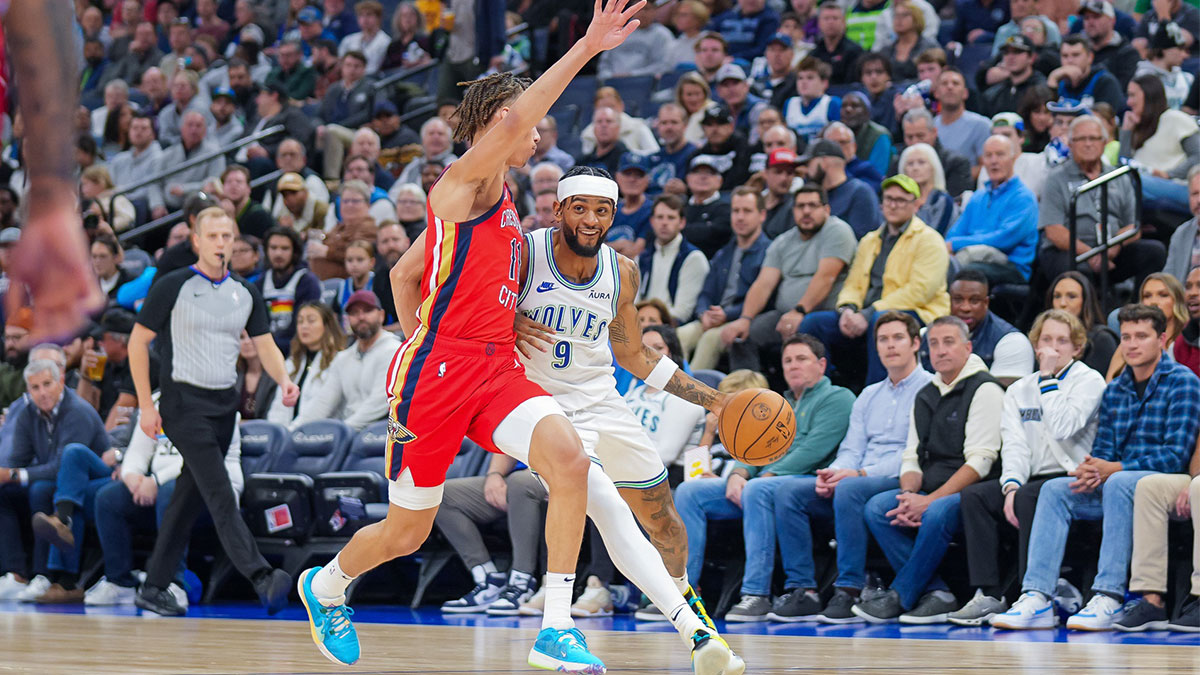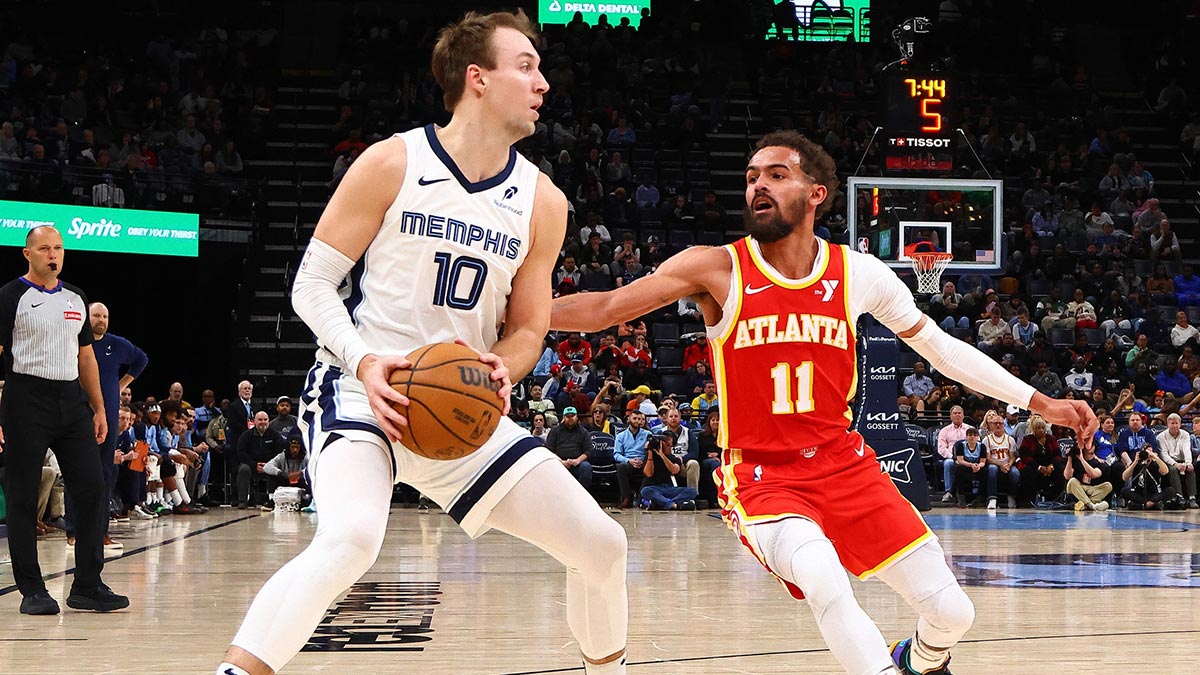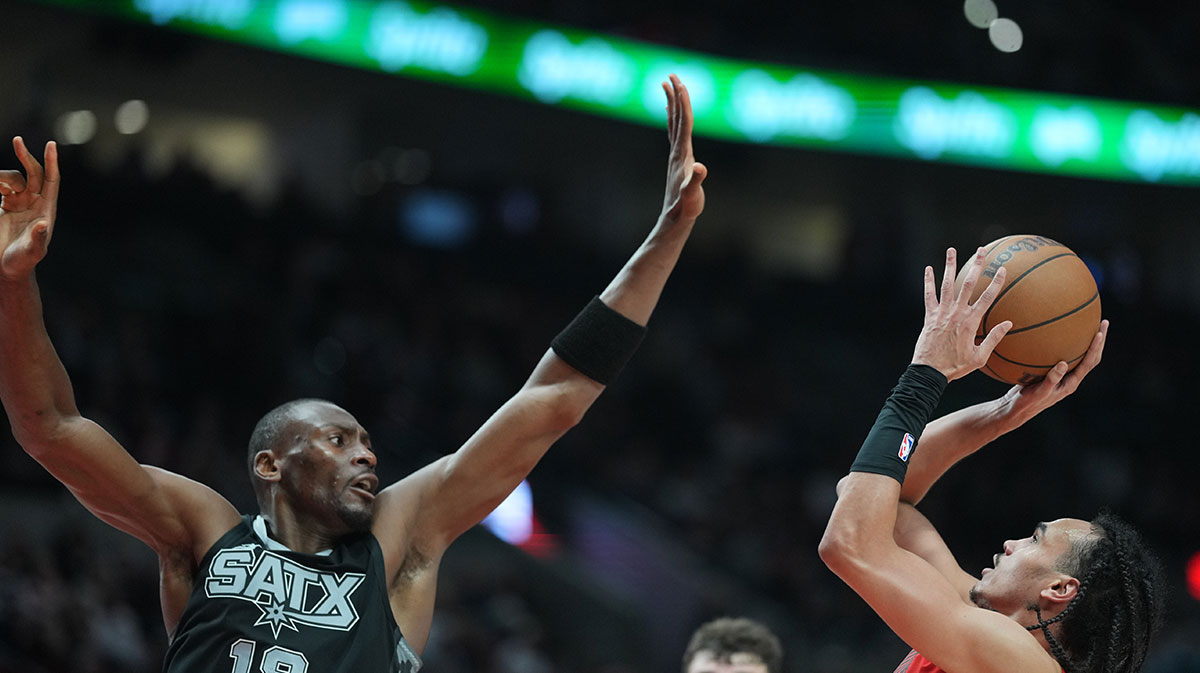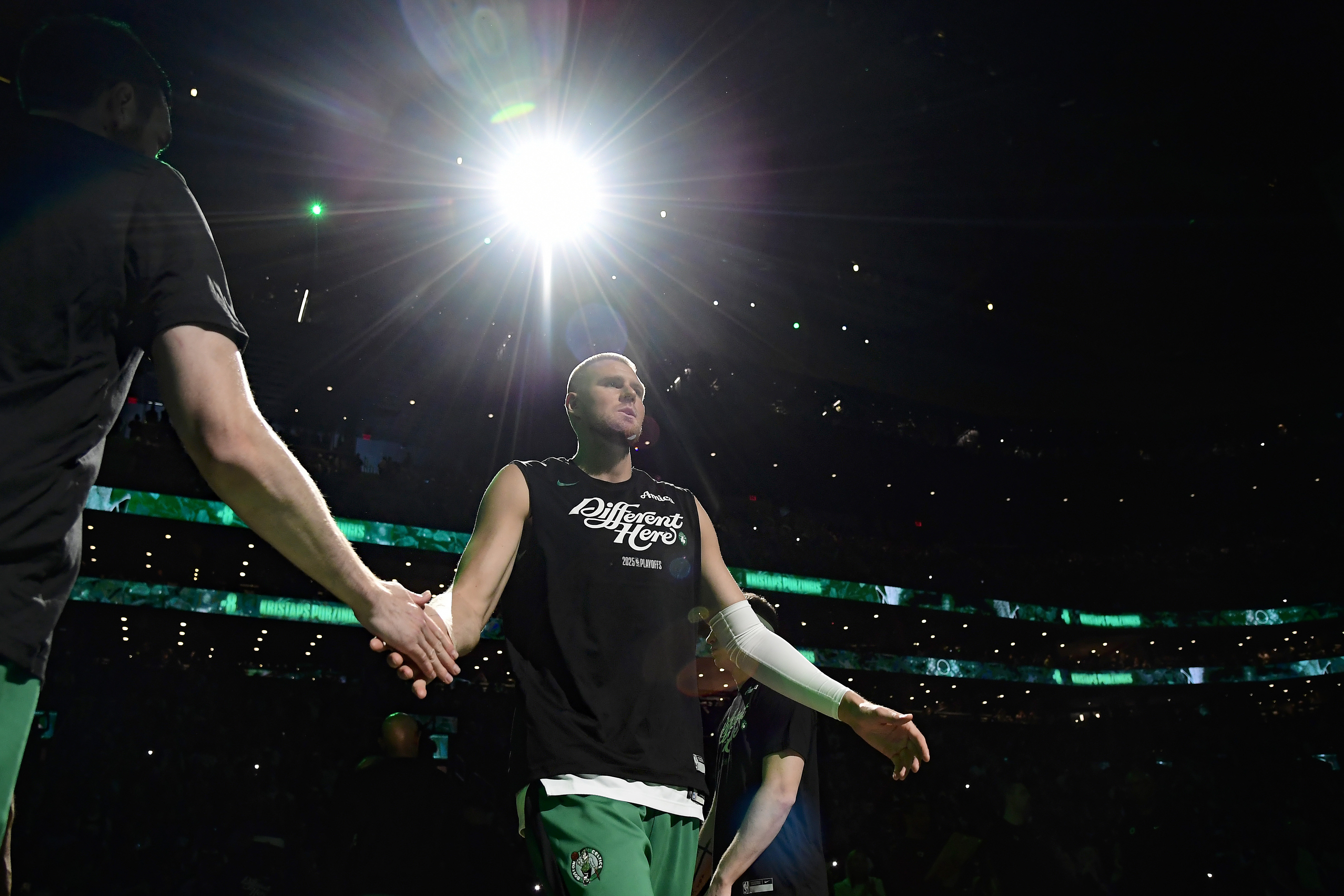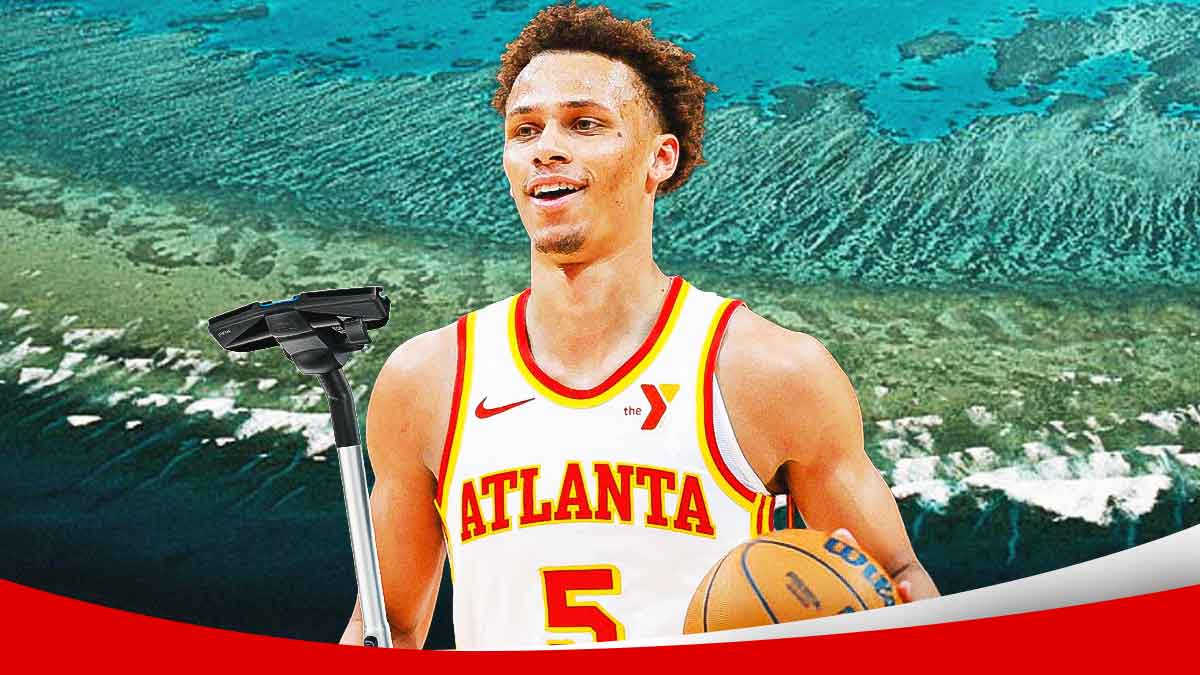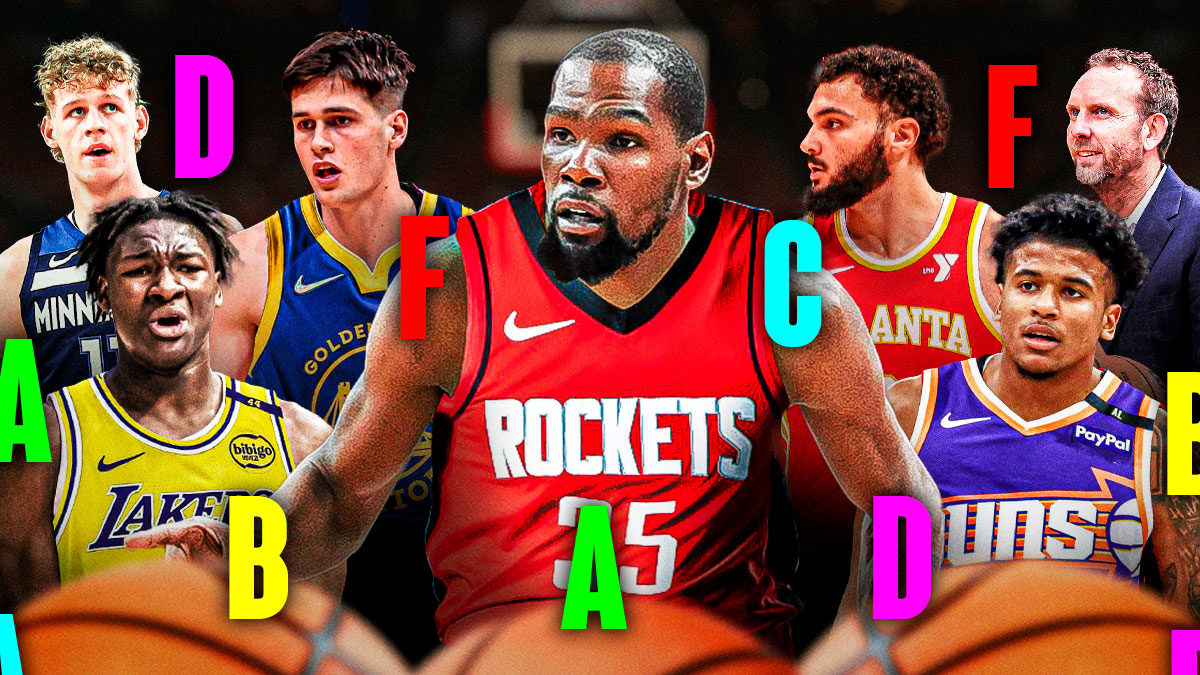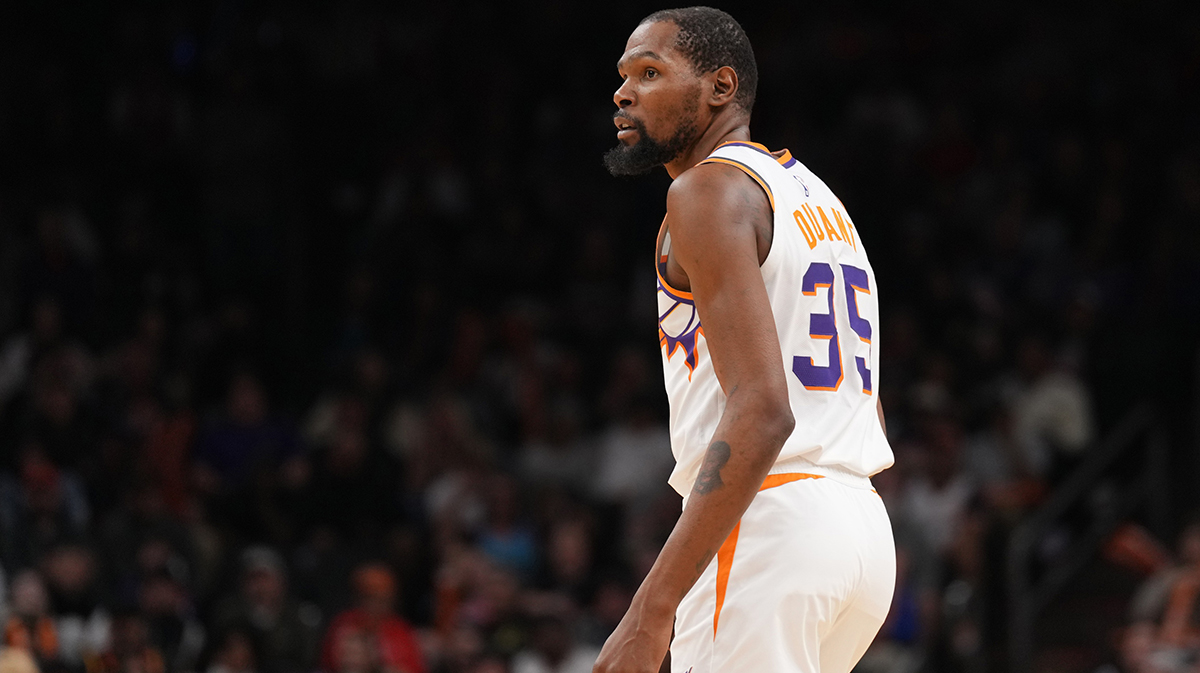Before taking on his soon-to-be record-breaking 22nd season in the NBA, Atlanta Hawks forward Vince Carter looks to pave the way for his next profession, now as a color analyst for Fox Sports during its presentation of the Jr. NBA Global Championship.
This event will see 32 teams (16 American and 16 international) comprised of 13- and 14-year-old boys and girls competing for the title of the best team in the world.
The Jr. NBA Championship, which is airing on Fox Sports 1 and 2 until Sunday, Aug. 11, has entered the bracket stage starting Friday, as these teams duke it out for the top spot.
Carter has had plenty of notable appearances as a broadcaster in recent years, including as a guest panelist on ESPN's The Jump with Rachel Nichols and a podcast that he started along his former Hawks' teammate Kent Bazemore called “Wingin' It” — part of The Ringer network.
The man once known as Half-Man, Half-Amazing is now lending his talents to the booth, describing the action that these soon-to-be NBA and WNBA players have brought to the stage over the course of this week. Carter was kind enough to make some time out of his busy summer schedule to tell us about his new gig.
How did this opportunity with FOX Sports come about?
Vince Carter: I was doing Summer League two summers ago and in the lunch room, believe it or not, sitting there and an idea was presented to me on doing something like this and doing the groundwork of setting it up and it was just a great opportunity for me, being that it was something I wanted to do once I’m finished playing.
We had a successful first year and right after the end of the championship game last year they asked me if I would be interested — I didn’t even have to think about it — I said ‘yes I’m back,’ and here I am.
How is this role of color analyst preparing you for your post-NBA career? How is it different than calling per se an NBA game?
VC: Outside of the kids being 13 or 14, that’s really the big difference. Being that I’m still active playing against current NBA players, it’s easy for me. There’s not that much work needed as far as homework because I know pretty much all the players that are playing [in the NBA]. In this situation it’s a lot different because you’re talking about kids that are coming from all around the world and there’s more players that you have to get the pronunciation of the names, but other than that, it’s still kind of the same concept and I approach it as such.
Do you find yourself being more or less forgiving given that they are 13- and 14-year-olds?
VC: We just trying to call the game as everyone is seeing it. We’re not really going out there to try to kill the kids or embarrass them, I don’t think that’s what calling the game should be anyway. We’re just kind of analyzing the game, talking about what we see and reminding people that these kids are 13 or 14 and they have such an upside.
Caidence Amartey with the step back 3 at the buzzer against Mexico at the Jr. NBA Global Championships! #excelhoopsprepwbb #jrnba #JrNBAGlobalChampionship pic.twitter.com/emYYk1v3oM
— Excel Hoops Basketball (@excelhoopsbball) August 8, 2019
Do you ever look at one of these kids and say: yeah, s/he has ‘it’? Does that ever happen during a broadcast?
VC: Every game. Every game we’re calling. You’re seeing these kids and you forget that they’re 13 or 14 because of their size, their athleticism, their decision-making. Especially for Donny [Marshall] and I, we can put ourselves in the situation that we were 13 or 14, we weren’t making these types of decisions or playing this style of basketball. The evolution of basketball is totally different and in a good way. I think these kids are getting an opportunity to showcase what the talent level is around the world at this stage.
I’ve read that Grant Hill was one of the people that helped you grease the wheels in this process, and obviously he’s done it at the NBA level — which active player in the NBA do you feel would have the chops to take a gig like yours after his career is over?
VC: You never really know, I think that’s something you fall into. You look at Ryan Hollins who was one of these guys I didn’t foresee taking on this role and he’s doing a bang-up job. He ruffles a lot of feathers, but for him I think that’s good. There’s a lot of guys that have the ability to do so, it’s just if they love it.
You think a guy like a CJ McCollum who has a degree in journalism?
VC: Sure. CJ McCollum would probably be the first one. He definitely has a knack for it, he does a lot of work in the offseason. The big fella from Indiana… Myles Turner. He’s another guy who’s been putting a lot of work in doing some broadcasting and analysis work. Those are two that I can think of right now.
Spider Mitchell is another one. He’s done some work as well — so there’s three.
Many announcers have grown up loving basketball and liking players like Dr. J, Larry Bird, Oscar Robertson, do you find yourself admiring or looking up to a particular name in the broadcasting industry?
VC: I can’t pick one, it’s all of them because they all have different styles and ways in which they approach their jobs. I think hearing and talking to each and every one of them and seeing what’s comfortable. I’m not trying to pattern myself after anyone, but I’m just trying to do what feels comfortable for me and what makes sense and while doing that you want to mold your style that makes sense and comes off easy on the ears for the listeners.
There is also a certain pressure that comes with having such a storied career like yours, much like Magic Johnson had becoming a coach and then a president for the Lakers, even Michael Jordan going from player to owner — do you feel there’s a certain pressure to deliver up to high expectations because of who you are as an NBA player?
VC: Not at all. I played the game so long that it’s easy to break down the game and explain to a fan where they can understand it from our world and our terminology. I don’t really see any pressures at all, I’ve done probably five, six years of practicing and calling games, studio work and sideline work, so I’m extremely comfortable.
Quinton Webb, 14-years-old, shows out at the Jr. NBA Global Championships. 🤯
(🎥: IG/jrnba) pic.twitter.com/R1U8WpfxSX
— theScore (@theScore) August 9, 2019
As a former Slam Dunk champion, not many players are able to look back and say: ’19 years ago, when I won the Slam Dunk Contest’ — so what do you feel is the biggest difference between what you and guys like Steve Francis and Tracy McGrady were doing back then and what guys are doing in recent dunk contests?
VC: It’s just the evolution. That could be said if you asked Michael Jordan or Dr. J about my time. They would say it’s just the evolution and it’s just people are expanding and what they’re thinking about now. It's like how do you even begin to think about putting the ball behind your back to dunk? It’s all these different things, it’s just the evolution and people are taking pieces of what they’ve seen in previous years and decades and adding their own twist to it. That’s what's great about it all, young kids are now able to put their twist on dunks and things that they’ve seen and it’s just wowing people now.
AG vs. Vinsanity would be a blockbuster 🍿
Aaron Gordon built his dream dunk contest with $15 pic.twitter.com/9z4QgEFG2N
— Bleacher Report (@BleacherReport) August 9, 2019
There’s been a lot of controversy about whether the Slam Dunk Contest is really back or not and the stakes that it’s had, do you feel it needs something else or do you feel it’s right where it needs to be?
VC: I’ll stay out of that. I think what the fans want to see is a good contest. We all have our opinions for it. Let’s say what makes sense for me is throw the ball up there and treat it like the old school, that’s where you get the best dunks. Don’t make it too gimmicky, don't overthink it — one after other, you showcase your dunks and that’s where you get your best quality in my opinion.

